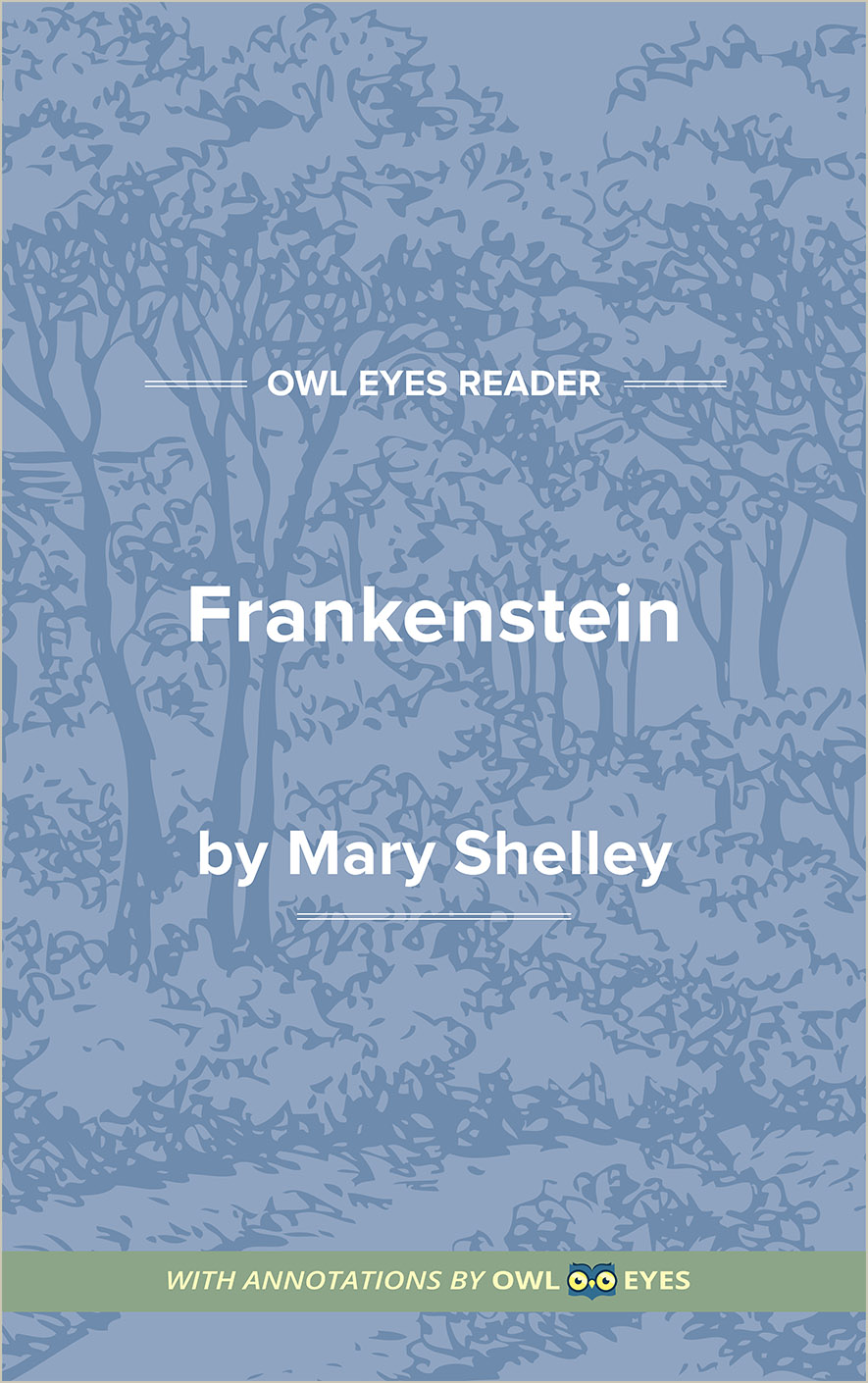Analysis Pages
Historical Context in Frankenstein
Publication: First published in 1818, Frankenstein was written by Mary Shelley, wife of author Percy Bysshe Shelley. Inspiration for the story’s setting came from her travels throughout Europe, while the motivation for writing arose from a competition between Mary, Percy, romantic poet Lord Byron, and novelist John Polidori to write the best horror story. While Percy’s and Byron’s stories were never finished, the competition produced two of the most famous horror novels in history: Polidori’s The Vampyre and Mary Shelley’s Frankenstein. Mary’s story was published, initially to mixed reviews, but would later go on to be a defining novel in both horror and science fiction.
Romanticism: In the early 1800s, romanticism was the dominant literary movement. Its main ideas—prioritizing emotion over reason and glorifying individualism and nature—can be seen throughout many texts written during this time.
Industrialization: In terms of scientific advancements, electricity was being studied for many applications, including galvanism, which seeks to produce movement through applying electrical currents to deceased flesh. This may, in part, have served as a real-world scientific basis for Frankenstein’s experiments.
Historical Context Examples in Frankenstein:
Preface
🔒"MARLOW..." See in text (Preface)
"Two other friends (a tale from the pen of one of whom would be far more acceptable to the public than anything I can ever hope to produce) and myself agreed to write each story founded on some supernatural occurrence...." See in text (Preface)
"The Iliad, the tragic poetry of Greece—Shakespeare, in the Tempest and Midsummer Night's Dream—and most especially, Milton, in Paradise Lost, conform to this rule..." See in text (Preface)
"Dr. Darwin..." See in text (Preface)
Letter IV
🔒"He was not, as the other traveller seemed to be, a savage inhabitant of some undiscovered island, but an European...." See in text (Letter IV)
Chapter I
🔒"my more than sister..." See in text (Chapter I)
Chapter II
🔒"Cornelius Agrippa..." See in text (Chapter II)
"Under the guidance of my new preceptors, I entered with the greatest diligence into the search of the philosopher's stone and the elixir of life; but the latter soon obtained my undivided attention. ..." See in text (Chapter II)
"Sir Isaac Newton..." See in text (Chapter II)
"Albertus Magnus...." See in text (Chapter II)
"Paracelsus ..." See in text (Chapter II)
"heroes of Roncesvalles, of the Round Table of King Arthur, and the chivalrous train who shed their blood to redeem the holy sepulchre from the hands of the infidels...." See in text (Chapter II)
"sublime..." See in text (Chapter II)
Chapter III
🔒"the university of..." See in text (Chapter III)
Chapter IV
🔒"science and mechanics..." See in text (Chapter IV)
"how dangerous is the acquirement of knowledge..." See in text (Chapter IV)
"I was like the Arabian who had been buried with the dead, and found a passage to life, aided only by one glimmering, and seemingly ineffectual, light...." See in text (Chapter IV)
"M. Krempe..." See in text (Chapter IV)
"the wisest men since the creation of the world..." See in text (Chapter IV)
Chapter V
🔒"and I threw myself on the bed in my clothes, endeavouring to seek a few moments of forgetfulness. But it was in vain: I slept, indeed, but I was disturbed by the wildest dreams...." See in text (Chapter V)
Chapter VII
🔒"cabriolet..." See in text (Chapter VII)
Chapter X
🔒"“We rest; a dream has power to poison sleep. We rise; one wandering thought pollutes the day. We feel, conceive, or reason; laugh or weep, Embrace fond woe, or cast our cares away; It is the same: for, be it joy or sorrow, The path of its departure still is free. Man's yesterday may ne’er be like his morrow; Nought may endure but mutability!”..." See in text (Chapter X)
Chapter XI
🔒"I found a fire which had been left by some wandering beggars..." See in text (Chapter XI)
Chapter XII
🔒"“I had admired the perfect forms of my cottagers—their grace, beauty, and delicate complexions: but how was I terrified when I viewed myself in a transparent pool! ..." See in text (Chapter XII)
Chapter XIV
🔒"She instructed her daughter in the tenets of her religion, and taught her to aspire to higher powers of intellect, and an independence of spirit, forbidden to the female followers of Mahomet..." See in text (Chapter XIV)
Chapter XV
🔒"Sorrows of Werter..." See in text (Chapter XV)
"Plutarch's Lives..." See in text (Chapter XV)
"Paradise Lost..." See in text (Chapter XV)

